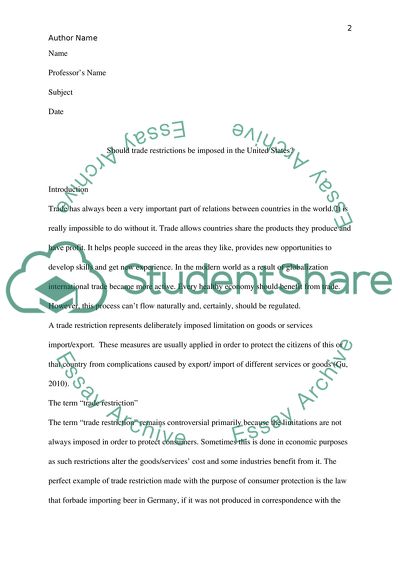Cite this document
(Should Trade Restrictions Be Imposed in the US Research Paper, n.d.)
Should Trade Restrictions Be Imposed in the US Research Paper. https://studentshare.org/macro-microeconomics/1798697-should-the-usa-impose-trade-restrictions-on-other-countries-in-an-attempt-to-force-them-to-improve-environmental-conditions-and-change-theire-labor-laws
Should Trade Restrictions Be Imposed in the US Research Paper. https://studentshare.org/macro-microeconomics/1798697-should-the-usa-impose-trade-restrictions-on-other-countries-in-an-attempt-to-force-them-to-improve-environmental-conditions-and-change-theire-labor-laws
(Should Trade Restrictions Be Imposed in the US Research Paper)
Should Trade Restrictions Be Imposed in the US Research Paper. https://studentshare.org/macro-microeconomics/1798697-should-the-usa-impose-trade-restrictions-on-other-countries-in-an-attempt-to-force-them-to-improve-environmental-conditions-and-change-theire-labor-laws.
Should Trade Restrictions Be Imposed in the US Research Paper. https://studentshare.org/macro-microeconomics/1798697-should-the-usa-impose-trade-restrictions-on-other-countries-in-an-attempt-to-force-them-to-improve-environmental-conditions-and-change-theire-labor-laws.
“Should Trade Restrictions Be Imposed in the US Research Paper”. https://studentshare.org/macro-microeconomics/1798697-should-the-usa-impose-trade-restrictions-on-other-countries-in-an-attempt-to-force-them-to-improve-environmental-conditions-and-change-theire-labor-laws.


